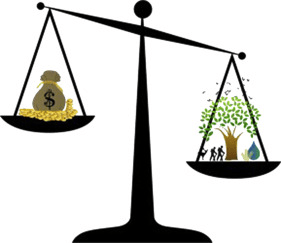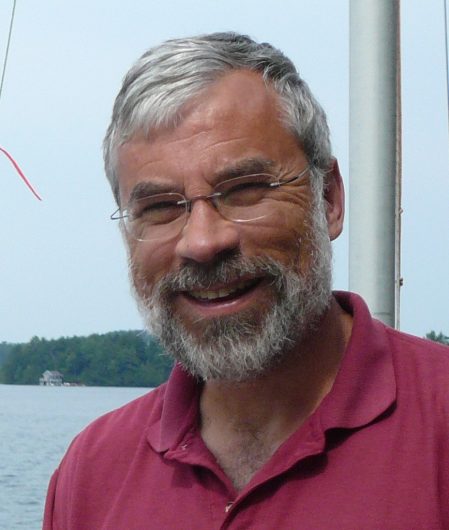Our Changing Watershed: Let’s Stop Pretending Our Environment is Worthless
Part two of a two-part series.
By Geoff Ross.
Last week’s article described how our society has progressed from an inability to recognize the value of healthy ecosystems, to the point where we understand what these values are, and that they are higher than the costs of protecting them. But it is ironic that in some cases we have come full circle – to a point where we no longer need to quantify ecosystem values. This is because the cost of not acting to protect them is simply not acceptable. One such case is climate change.
Throughout 35 years studying climate change, each report from the United Nations Intergovernmental Panel on Climate Change (IPCC, the 6th released in 2023) has identified the threat in greater detail, as more serious and more certain. During this time the climate deniers, funded to a huge extent by the fossil fuel industry, have attacked the IPCC reports as representing anything between an outright hoax to a grossly exaggerated and highly uncertain theory. Their efforts have been successful – we have seen little progress in reducing anthropogenic greenhouse gas emissions over these 35 years. We have wasted precious time.
As a result we now see, in Canada and globally, examples of the long-predicted impacts of climate change – forest fires of record extent and damage, droughts contributing to those fires and to crop damage, record rainfall leading to floods, and record heat episodes leading to deaths.
Less visible, but also highly concerning, is climate damage to ecosystems. Extreme heat doesn’t just kill humans. The living organisms that keep our ecosystems alive can only exist within a narrow temperature range. Unlike the most fortunate humans, who can use air conditioning (exacerbating the climate problem) or move to cooler regions, whole ecosystems that we depend on for our food, clean air and clean water, are at risk due to higher temperatures. It has taken millions of years for these ecosystems to evolve to function in the manner that keeps human civilization alive. But human-induced change is on track to alter all of that within less than 300 years.
With impacts now so obvious, the climate denial industry is having more trouble casting doubt on the reality of climate change. But that has not stopped them – they have merely changed their strategy from denial to obfuscation. It seems hardly a day goes by without an article describing the extremely high costs of climate action, but carefully avoiding mention of the costs of doing nothing, or the economic benefits of taking action. Such fear-mongering is disgraceful, but it is also highly effective in a world obsessed with the economy while ignoring where our food, air and water are coming from.

Climate change caused by human activity is now widely recognized as an existential threat to human civilization (Bradshaw et al., 2021; IPCC Summary for Policy Makers, 2023). On July 27, 2023, United Nations Secretary General Antonio Guterres noted that “Climate change is here. It is terrifying. And it is just the beginning; the consequences are as clear as they are tragic.”
We don’t need to estimate the value of earth’s ecosystem services in order to justify action to protect them – where the problem is existential, as climate change is, the costs of not acting are simply unacceptable. So what can we do?
If, under the current circumstances, you are still a climate change denier, there is likely not much I can say to change your mind.
For those who understand how serious climate change is, reducing your own greenhouse gas footprint is a first step.
And your elected representatives at all levels must know that you hold them accountable for dealing with climate change as the existential threat it is. Vague promises, poor planning and half-measures amount to doing nothing. And the costs of that are simply unacceptable.

This article is one of Muskoka Watershed Council’s summer 2023 series on “Our Changing Watershed” in The Muskokan newspaper. This week’s article was contributed by Geoff Ross, a retired professional engineer and past chair of the Muskoka Watershed Council. He holds a Master’s degree in human physiology and endocrinology. Series editor is Dr. Neil Hutchinson, a retired aquatic scientist, Bracebridge resident and Director, Muskoka Watershed Council.
